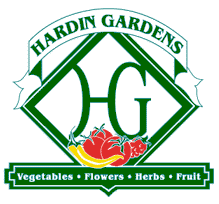Are organic and sustainable the same?
Organic agriculture is becoming more popular because consumers are demanding healthful and
environmentally friendly food. In theory, organic agriculture strives to preserve the land for generations to come,
but increased demand has interested large agribusiness corporations who intend to profit from the land.
The issue can be very confusing -- for example, even though organic is certified by the USDA,
large corporations have found ways to raise dairy cows in confinement, use massively large acreages to plant crops (monoculture),
and ship food thousands of miles to sell. These practices are not considered sustainable.
This means that organic and sustainable agriculture are similar in some respects but different
in others. The following is a comparison of the two farming techniques.
Organic) Must be certified every year and approved by the USDA.
Sustainable) No certification necessary.
O) Can confine animals. Only need to give animals "access"
to outdoors; don't actually have to let them go out.
S) Animals must be permitted to carry out their natural behaviors,
e.g., rooting, pecking or grazing. A sustainable farmer might keep his animals indoors in bad weather, but the health
and well-being of the animal comes first.
O) No antibiotics allowed.
S) No legal restrictions, though sustainable farmers either will
not give any antibiotics at all or only when animals are sick and need to be treated. Antibiotics are never routinely
put in feed or water to promote growth or to ward off potential disease.
O) No hormones allowed.
S) No hormones used.
O) Large corporations can raise food organically.
S) Sustainable food production is carried out by familes who live
and work on the land.
O) There is no limitation on how many acres can be used to grow
crops.
S) Sustainable farmers use various placements of crops and plants
as a form of pest control and to build soil fertility. Crops are not raised on massive amounts of acreage.
O) Food can travel
thousands of miles before reaching your dinner plates. Organic food does not consider the use of fossil fuels or extended
amounts of time that can result between harvesting/processing and eating.
S) Food is raised and sold as close to the farm as possible.
Buying locally and eating as seasonally as possible are sustainable practices.

